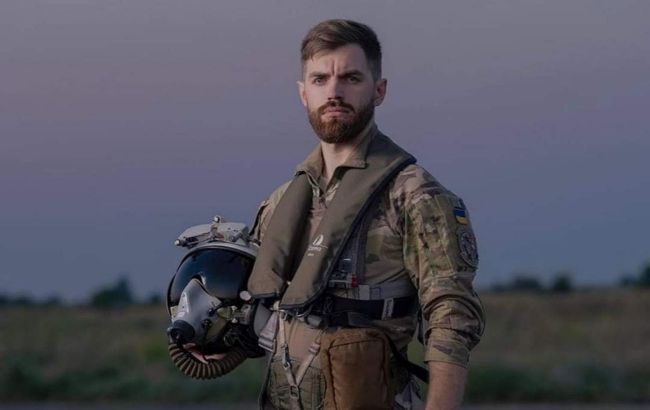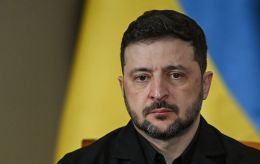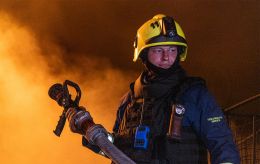Pilot 'Juice' died on August 25 - He defended Kyiv, ensured the transfer of F-16
 (photo: twitter.com/MilAviaUA)
(photo: twitter.com/MilAviaUA)
On August 25, due to an aviation accident in the Zhytomyr region, the well-known Ukrainian pilot Andrii Pilshchykov, call sign "Juice," tragically lost his life.
Andrii "Juice" Pilshchykov was a pilot of the MiG-29 fighter jet. He served as part of the 40th Tactical Aviation Brigade. In his earlier years, "Juice" graduated from the Kharkiv National University of Air Forces.
As the wide-scale Russian invasion began, he defended the skies of Ukraine, becoming one of the "Ghosts of Kyiv" and participating in the defense of airspace in other regions as well.
In 2018, he took part in the international exercise "Clear Sky," during which the Americans gave him the call sign "Juice."
In interviews with The Washington Post, Financial Times, CNN, Fox News, and BBC News, he called on Western partners to provide Ukraine with modern fighter jets.
Death
On August 25, on the eve of Ukraine's Aviation Day, two L-39 aircraft collided in the sky near Zhytomyr while carrying out a combat mission. As a result of the aviation accident, three pilots lost their lives, including "Juice."
The calls to provide Ukraine with modern fighter jets
"Juice," without mentioning his last name, called on Western media and Western partners to provide Ukraine with modern fighter jets.
In 2022, he visited the United States and met with President Joe Biden's National Security Advisor, Jake Sullivan, and American lawmakers. During these meetings, he reiterated his call for the transfer of modern fighter jets to Ukraine.
"Juice" about the first days of the full-scale war
"In the first days, it was very unusual for me as a pilot. When I arrived at the airfield in haste, the aircraft had already been dispersed to other airfields. So, there was no need for me as a pilot. This is not surprising because there are always more pilots than aircraft. Therefore, I was involved in the ground defense of the airfield, as there was a threat of sabotage and reconnaissance groups (SRG) and enemy paratroopers," he explained in an interview with DW.
According to him, at that time, thanks to coordination with special forces and volunteers, they managed to defend the airfield. Moreover, they were able to service and arm Ukrainian aircraft that arrived. These were the first two weeks. Then "Juice" started carrying out missions as a pilot in an aircraft.
At the beginning of the war, when they were driving Russian occupiers out of northern Ukraine, he covered the strike aviation. As "Juice" explained in April of this year, at that time, the front line was rapidly changing, and the enemy's tactics were unpredictable. Consequently, there was no clear picture of the situation.
"This uncertainty about where you are flying is tense and causes some anxiety. There are still risky missions in the eastern direction, but everything is clearer and more predictable now. So, you mentally prepare yourself. Sometimes you jokingly think that it might be easier not to know about the threats because this kind of anticipation can be stressful. However, after more than a year of war, everyone has adapted," the pilot said.
The trip to the United States
When talking about the Ukrainian delegation's trip to the United States, "Juice" mentioned:
"At that time, we were literally coming from the battlefield to report on the situation. Our delegation primarily raised the issue of Air Defense Systems (PPO), which was the most critical equipment at the time. Thank God, we received assistance with that, and now Ukraine has systems like Patriot, NASAMS, IRIS-T. Our guys have mastered all of this and are using it very successfully. It can be said that back then, they believed in us and entrusted us with air defense systems."
He added that during that time, they also discussed the necessity of arming ground forces and aircraft.

